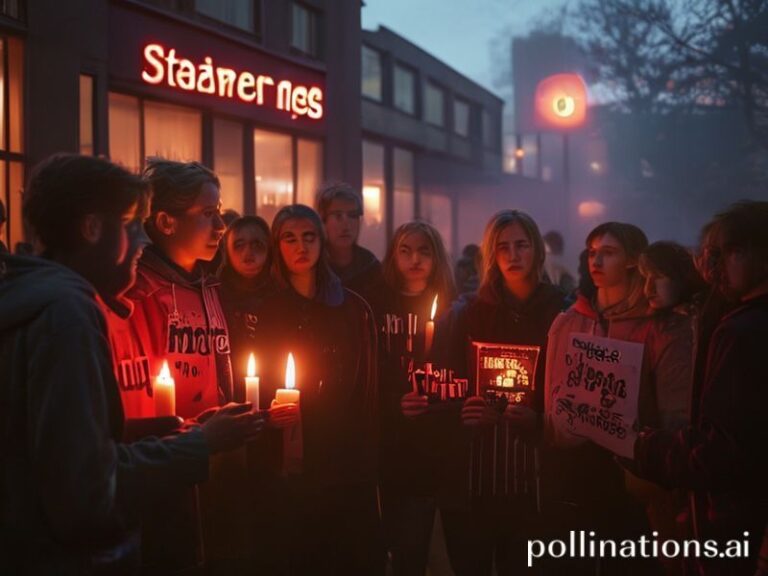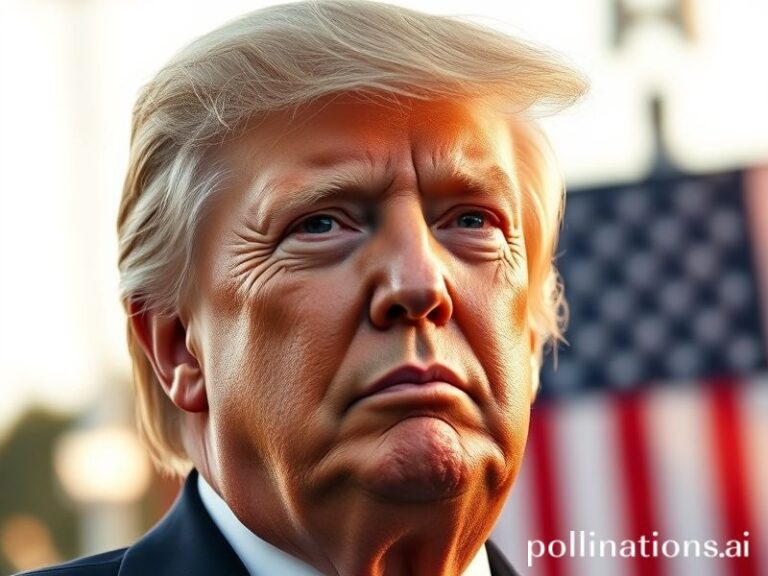Santos-Tijuana: The Border Derby Where Football Sells Everything Except Escape
Santos-Tijuana: The Border Derby Where Football Meets the Global Black-Market Bazaar
By “El Comandante” – Dave’s Locker, Southern Bureau
TIJUANA – Somewhere between the duty-free tequila stands and the dental-clinic hawkers, a modest stadium rises above the rust-colored fence that politely separates First-World appetites from Third-World wages. Every few weeks Estadio Caliente hosts Club Tijuana vs. Club Santos Laguna, a fixture better known to the locals as the “Clásico de la Fuga” – the Escape Derby – because half the crowd seems to be plotting an exit, either north to San Diego’s strip-mall serenity or south to whatever refuge passes for safety these days. For the rest of us, the match is a living allegory of globalization: 22 men chasing a leather orb while the world’s supply chains, migration flows, narco-logistics, crypto-laundering, and influencer-brand-deals swirl around them like confetti laced with fentanyl.
Take the jerseys. Santos’ verdant green is manufactured in a sweatshop outside Dhaka, shipped through the Suez Canal (weather permitting), trucked across the Sonoran desert protected by cartel “security consultants,” and finally retailed at the stadium pop-up between a vape kiosk and a guy selling artisanal carne-asada tacos he swears aren’t iguana. Tijuana’s red-and-black stripes, meanwhile, are stitched in Vietnam, token-traced on blockchain, and blessed by a social-responsibility consultant who flies in on a Gulfstream powered by the same bunker fuel that later ferries the losing team’s ultras back to Torreón. Somewhere Greta Thunberg is weeping into her reusable straw.
The geopolitical subplot begins in the parking lot. Gringos with SENTRI lane stickers tailgate next to Honduran families who paid coyotes last month’s rent to get here and will spend tonight’s rent on Xolos merch because, as the ancient wisdom goes, nothing integrates you into a border economy faster than overpriced polyester. A Swiss commodities trader in designer sneakers queues for micheladas behind a Haitian asylum seeker who hasn’t decided whether to request U.S. protection or pivot to Canadian maple-syrup dreams. Everyone’s livestreaming; the algorithm cheerfully recommends a Russian crypto exchange ad featuring an oligarch cuddling a tiger. Somewhere a drone pilot in Nevada yawns, toggling thermal imaging between the match and a smuggling tunnel 300 meters away. Multitasking is the true American dream.
Kickoff. Santos takes an early lead, aided by a center-back who allegedly moonlights as a TikTok influencer for a Guadalajara tequila brand. Tijuana equalizes via a 19-year-old winger whose agent has already trademarked his goal celebration in the EU. The PA system, bilingual by legal necessity, reminds fans that betting responsibly “es chido,” which translates roughly to “please don’t murder the bookie if you lose your rent money, because that would be bad for tourism.” A consortium of London hedge funds is shorting the over/under in real time; their algorithms have factored in humidity, referee corruption rumors, and the probability that the halftime fireworks will trigger a cartel turf alert, thus emptying the stands and killing scoring chances.
The second half drifts into the surreal. A drone drops a bag of limes onto the pitch – narco-marketing, obviously – and the referee, a man whose day job is adjudicating customs disputes, plays advantage. Santos scores again. The Xolos ultras respond by unfurling a banner reading “Build Bridges Not Walls,” which is either a heartfelt plea or a cynical ad for a hipster mezcal label; no one can decide. The stadium’s Wi-Fi collapses under the weight of 50,000 simultaneous VPN connections back to Netflix libraries in countries that still have functioning governments.
Full-time whistle. Santos win 3-1, securing precious Liga MX playoff pesos and nudging their parent company’s share price on the BMV, which in turn affects some pension fund in Stockholm holding emerging-market soccer debt. The players troop off to an orgy of product placement: energy drinks, crypto wallets, a Lebanese airline that exists mostly for mileage-laundering. Fans exit past billboards promising “Cross-Border Healthcare Packages – Liposuction & Root Canal Combo!” Outside, the Tijuana-San Ysidro crossing glows like a dystopian drive-thru. Some spectators will be home in San Diego before the traffic lights change; others will spend the night in a concrete drainage pipe, dreaming of green cards and green pitches.
And so the Border Derby ends as it began: a chaotic bazaar where sport, survival, and global capital exchange phone numbers in the parking lot. Somewhere in Brussels, a Eurocrat updates a white paper on “soft-power projection through athletic subcultures.” Somewhere in the Sonoran night, a coyote updates his Yelp reviews. And somewhere in the middle, the rest of us queue for tacos, wondering if the real match was ever about football at all.







